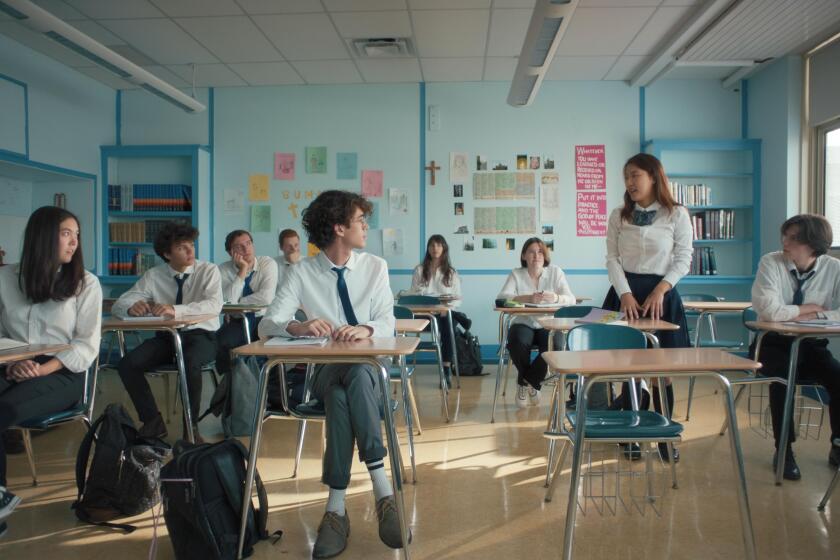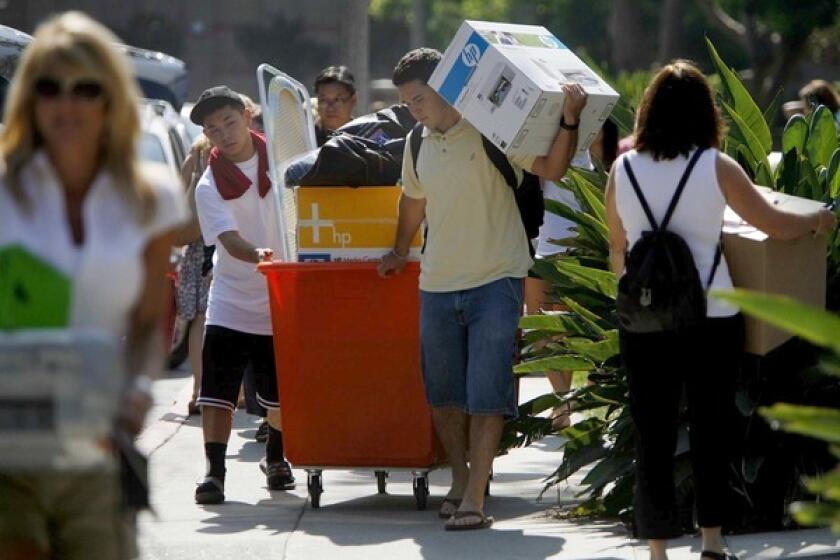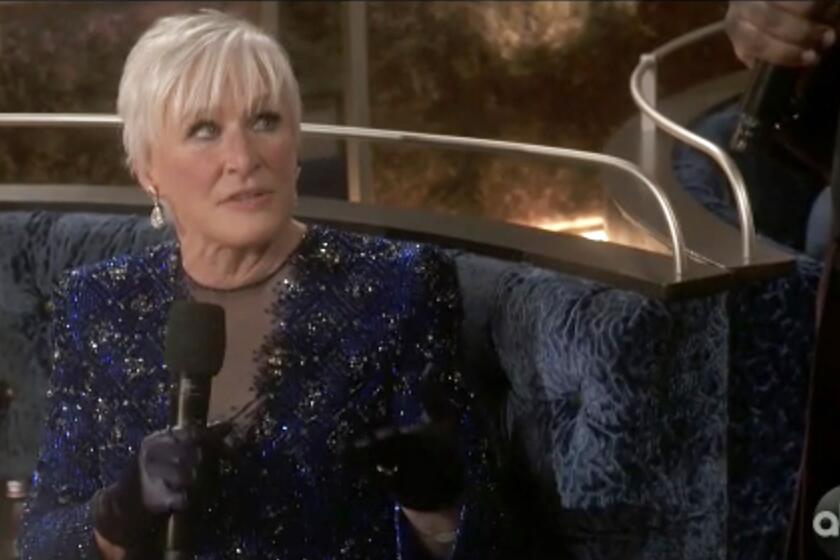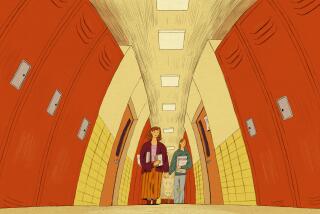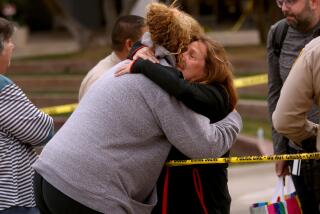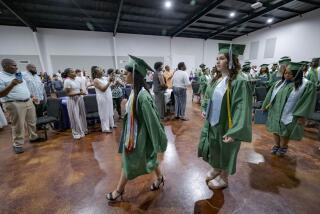Column: How a COVID ‘make-up’ college graduation ceremony actually made up for a lot
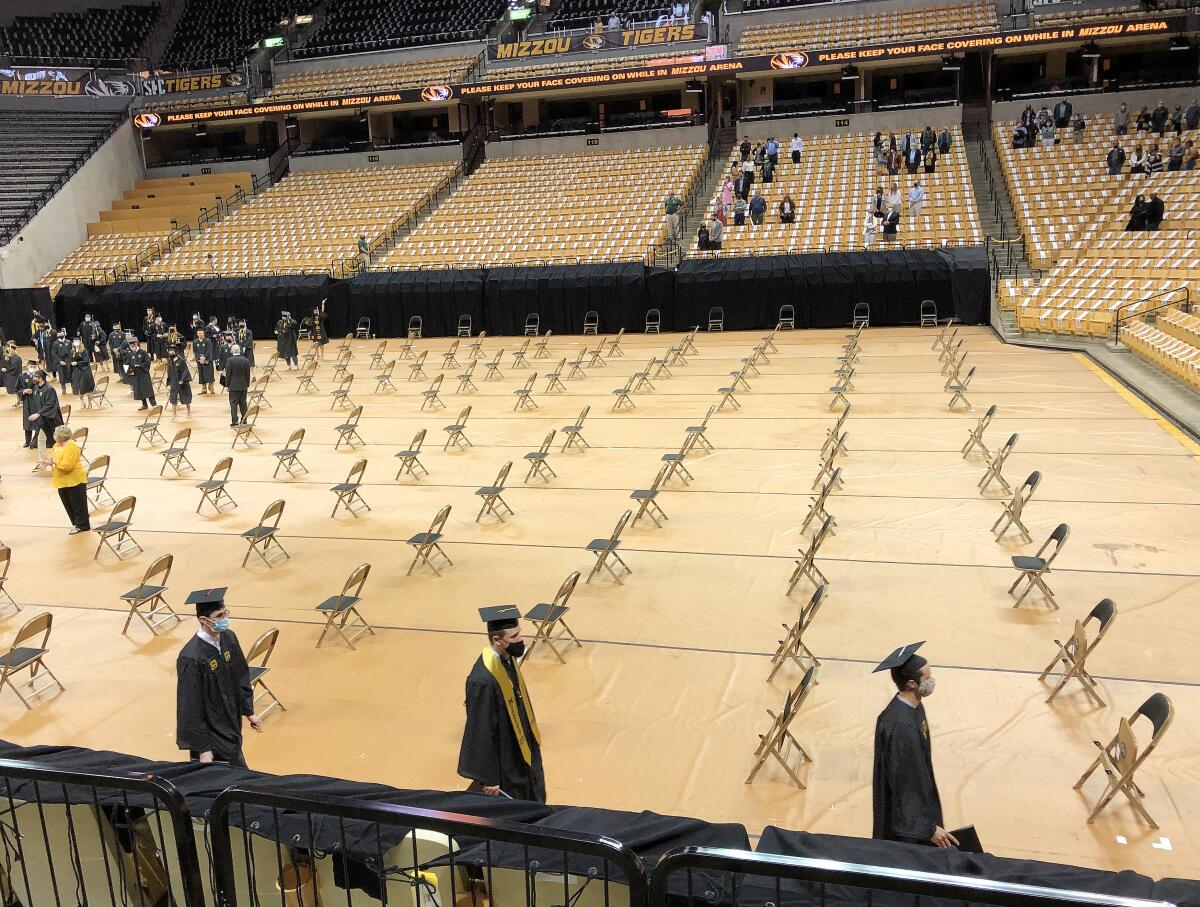
Along the portion of Interstate 70 that runs through Missouri, yellow rocket swarmed the roadside, redbuds laid magenta feathers against the stolid pines and green-misted treetops framed mile after mile of farmland — the glittering silos and the black cows, the sudden absolute red of an American barn inevitably followed by a white house with a green roof nestled under a few shade trees amid fields either fallow or plowed.
Driving this road recently, my throat thickened and throbbed. For a moment I thought it was in response to the simple wonder of seeing spring rising from the heartland, gracious and inevitable, even after this terrible year. Then I looked at my son, in the front seat, and remembered that I am a mother and mothers always cry at a child’s graduation, even when that graduation is small, masked, socially distant and a year too late.
Danny graduated from the journalism school of the University of Missouri in May, 2020. As with virtually every school in the world, all graduation festivities were canceled due to COVID-19. His documentary program had held a makeshift ceremony in the parking lot of a closed-down movie theater, after which he and his friends wandered through the empty campus and took the obligatory photos in front of the iconic columns.
We saw the pictures and FaceTimed with him for a bit, but we were not there to see our first child graduate from my alma mater and it stank. Still, amid hideously rising deaths and overwhelmed hospitals, the loss of a ceremony, of being proud parents among a crowd of proud parents — jockeying for the best views, the best photo ops, a table in a restaurant — did not seem like a very big sacrifice. As we reassured him, his diploma was still a mark of accomplishment even if he hadn’t crossed a stage in cap and gown to receive it.
He came home at the end of May; the internship he had hoped for had been suspended before any decision was made. The cross-country documentary he had planned to begin working on became impossible. The job he had landed at the Telluride Film Festival soon vanished. Instead, he was living his worst nightmare: working out of his childhood bedroom in his parents’ house.
In the last decade, the festival boom has come to TV. But instead of awards and acquisition buzz, the circuit is for “dismantling the gatekeepers.”
A few weeks were devoted to existential angst. Like many, he was trapped between all the terrible things happening in the world and the excruciating limits of daily life. More specifically, he and his fellow college graduates faced the frustration of being trapped between one life stage and another.
He edited a friend’s music video, did an online promo for a local bookstore, started a podcast. For a week. he worked as a production assistant on an independent film. He made enough money driving for Postmates to take a trip to the Tetons with his friends when summer brought some relief from the pandemic. He filmed conversations with his father about the glory days of the Haight in the 1960s. He taught at a local STEM academy and, during Los Angeles’ terrible winter, built out the family van so he could start his cross-country project as soon as it was safe.
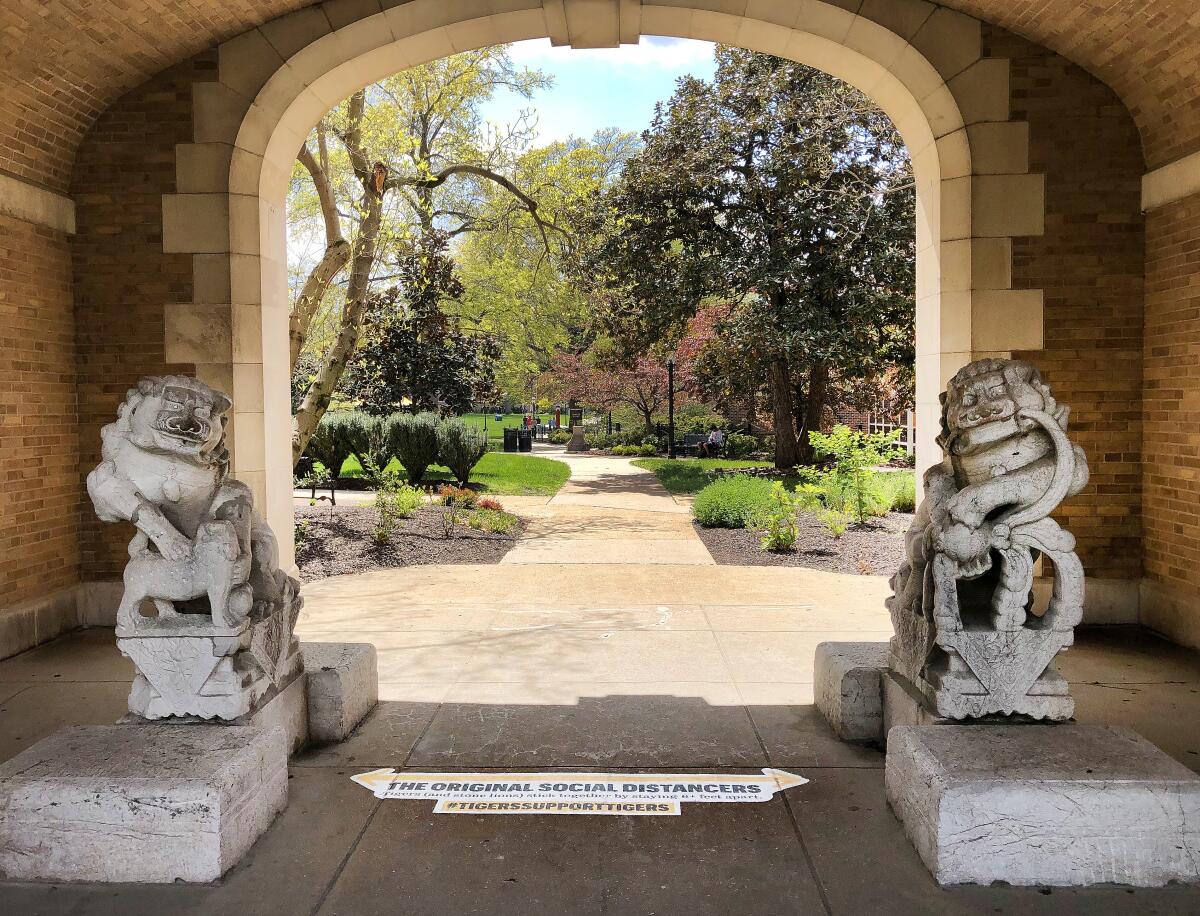
Danny struggled to accept that his failure to launch had nothing to do with him; he read Steinbeck and Kerouac and Hunter S. Thompson; he got a Gonzo tattoo and bleached his hair. He derived joy from his ability to connect with the kids he taught and tried not to watch as the days of his 22nd year piled up around him like the discarded hoodies and jeans on his floor.
His father and I struggled to give him both emotional aid and independence, which included gritting our teeth and ignoring the discarded hoodies and jeans on his floor.
When Mizzou announced it would be holding a make-up graduation ceremony for the class of 2020, Danny’s first inclination was to pass. It would only be worth it if the family could go, and why risk the flight? Then the vaccinations rolled out with surprising speed and he wavered. Would he feel stupid going back to college a year later? Would it only underline the loss of all he had hoped to accomplish this past year? Most of his friends weren’t going, so what would be the point? To walk across a socially distant stage? He didn’t even know where he had put his cap.
And yet, my son is a journalist, a documentarian. He decided he could not forgo the chance to be part of an event that had never happened before. He was one of a class like no other, the Class of COVID-19. All over the country, colleges and universities were offering better-late-than-never ceremonies; how could he not participate and document his own?
It was rainy and cold when we arrived in Columbia, and both campus and town were deserted. For a day, it seemed research, rather than celebration, would have to be enough (research, and Shakespeare’s pizza). To allow social distancing, a series of ceremonies would be held at the university’s indoor stadium, the Hearnes Center; he had been given the choice of two. The head of the Doc-J program would be reading the names at 8 a.m., and in what may have been the greatest tribute a student has ever paid a teacher, Danny chose to participate in that one.
Even though she really misses her college, and wants out of our house, my daughter decided the risks outweigh the benefits and is taking her classes from home.
Of course it was raining, but at 7 a.m. (5 a.m. Pacific, as Danny’s younger sister pointed out), what’s a little rain? The Hearnes Center, which seats more than 13,000, swallowed the few hundred family members in socially distanced assigned seating. The grads, meanwhile, made their way to folding chairs set on the arena’s floor at six-foot intervals. Ten or so university administrators walked in to “Pomp and Circumstance,” the abbreviated edition. There was a rousing speech by an official, though I did not get his name and there were no programs, and then each graduate made their way across the floor to pick up their diploma cover (they already had their diplomas) and then sat down again.
Our seats were very far away from the dais, but I could track Danny by his red tassel and the white stripes of the stained and battered black Adidas he wore because they were the shoes of his actual senior year.
Though punctuated by applause and cheers from each family as a name was called, much of the ceremony occurred in the strange ringing silence of a very large, nearly empty basketball arena.
It was wildly moving.
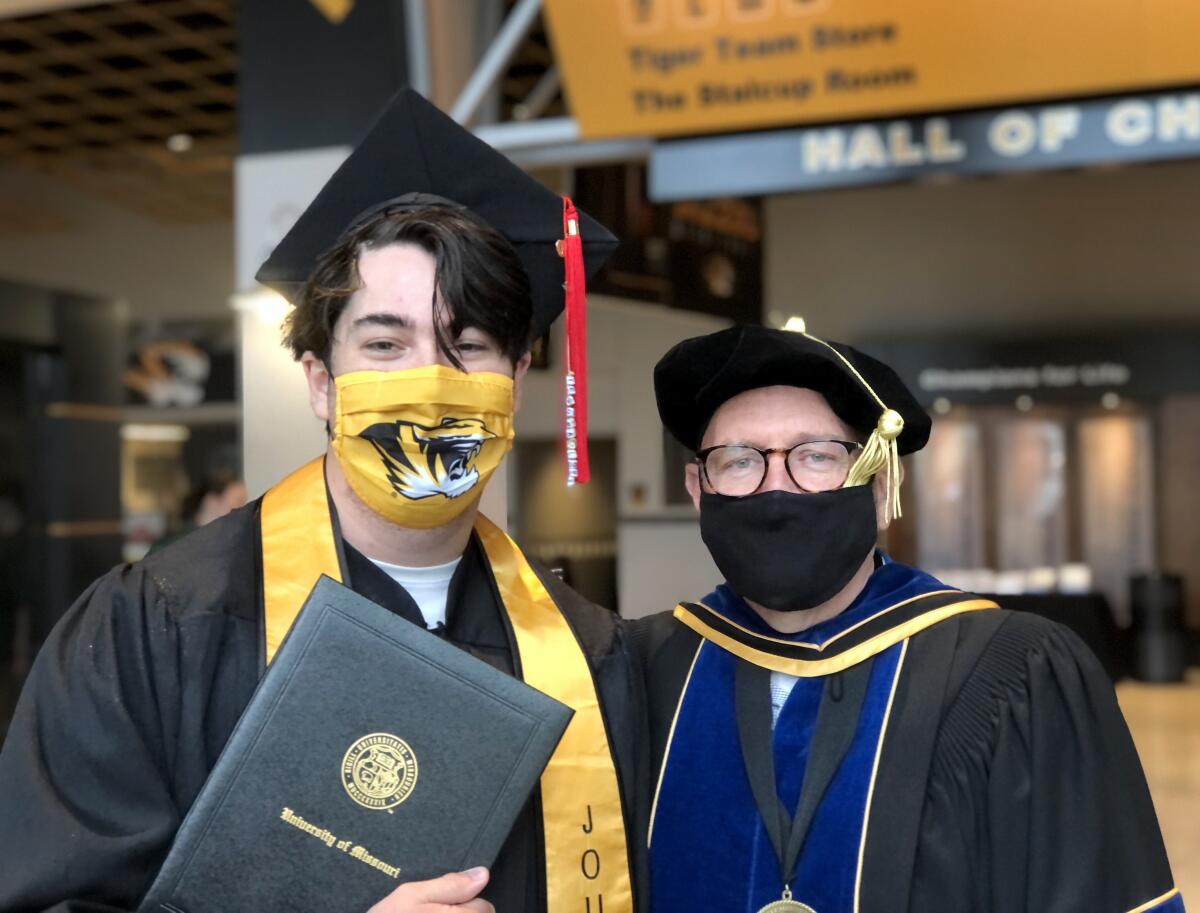
For a few hours, Danny was a graduate among graduates, looking solemn as he crossed the floor and later, outside, hanging on to his mortarboard when the wind blew up and all the gowns flapped like ravens’ wings. And we were proud parents among proud parents, even if our fellows were masked and few. Though only a sliver of Mizzou’s 2020 graduating class participated — “I was in town hanging out, so I thought, why not graduate?” I heard one young woman say — it was enough to make it feel real. It was also nearly impossible to find a table for dinner that night, but who’s going to complain about any graduation ceremony that takes little more than an hour? Not me.
Walking across that floor really did matter, as it turned out. We have rituals to mark beginnings and endings for a reason. For a moment or two, certain milestones of our personal journeys become public record, experienced, shared and fixed.
And in this year, that milestone marked more than graduation; it marked the ability to have a graduation ceremony. Something we have taken completely for granted, but never will again.
Column: In 2020, I was astonished people forget about the Oscars. This year, the inevitable happened
I was afraid that watching the telecast at 30,000 feet would diminish the experience. Instead it just enhanced the night’s ‘What is happening?’ vibe.
The sun came out around noon and suddenly town and campus came to life. The air throbbed with music from bars and fraternity houses, the sidewalks burbled with the chatter and laughter of students lining up for ice cream and pizza and beer. Everyone was masked, but after months of reading the eyes of strangers, you could tell everyone was smiling.
Never have I gloried in the sound of house parties — especially loud as they were outdoors — as I did that night. It was the music of graduation night, my son’s graduation night.
And that is what watered my eyes and closed my throat on the drive to the airport the next day as the redbuds and white farmhouses of Missouri rolled by. Danny would still be returning to his old bedroom in his parents’ house, but he was finally out of the seemingly endless empty hallway the pandemic had created for him. One door had truly closed behind him and another, like spring, was finally cracking open.
More to Read
The biggest entertainment stories
Get our big stories about Hollywood, film, television, music, arts, culture and more right in your inbox as soon as they publish.
You may occasionally receive promotional content from the Los Angeles Times.
